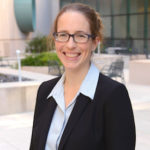UTD TEAM FINDS PAIN-SIGNALING PATHWAY

Ted Price
Researchers at the University of Texas at Dallas have found a pain-signaling pathway that they believe could lead to a reduced need for opioid drugs to relieve chronic pain.
The team’s findings on how inhibiting a process called phosphorylation occurring outside nerve cells could disrupt pain signals were published in the journal, PLoS Biology, by UT Dallas neuroscientist Ted Price, a co-author of the study.
Price is associate professor of neuroscience in the School of Behavioral and Brain Sciences at the university. He also co-founded, CerSci Therapeutics, a startup working to develop non-opioid alternatives to treat pain.
“We found a key new signaling pathway that can be managed,” Price said in a news release. “Now we hope we can use the finding to discover a new drug.”
According to the release, phosphorylation is a biological process that happens when a kenase — a type of enzyme —attaches a chemical called phosphate to a protein, which modifies the protein and its function.
BRIT, UTA FIND HOMES FOR LOUISIANA UNIVERSITY’S COLLECTION
The University of Louisiana at Monroe’s loss is a gain for two major research institutions in North Texas.
The Louisiana university announced in March that it could no longer house a massive natural history collection, and the specimens would be thrown out if new homes weren’t found for them.
The Botanical Research Institute of Texas in Fort Worth and the University of Texas at Arlington stepped in take the items, preserving them as research tools into the future.
“BRIT’s herbarium was designed to house over two million plant specimens,” Ed Schneider, president and executive director of BRIT, said in a release. “Orphaned herbarium collections such as this one are just the type of acquisitions we had in mind as our headquarters building was being designed. Safeguarding and protecting plant specimens for research and education is our Institute’s mission.”
BRIT Herbarium Director Peter Fritsch told WFAA/Channel 8 the items were “priceless information,” that would be lost if thrown out.
“We’re excited to be able to protect these collections and know they’ll continue to be able to be used.”
Peter Fritsch
BRIT adopted the university’s 475,000-specimen collection of plants representing 99 percent of Louisiana’s flora species. The specimen’s were transported to Fort Worth in trucks that were kept at 20 degrees below zero.
“We’re excited to be able to protect these collections and know they’ll continue to be able to be used,” Fritsch said.
UT Arlington has given a home to the specimens in ULM’s amphibian and reptile collection — all 50,000 of them — at UTA’s Amphibian and Reptile Diversity Research Center.
“That’ll put use well over 200,000 [specimens], which makes us the largest collection of its kind in Texas and really one of the largest in the world,” said Jon Campbell, chair of the Biology Department at UT Arlington.
UT SOUTHWESTERN RESEARCHER GETS $300K GRANT

Kendra Frederick
A researcher at UT Southwestern Medical Center has been recognized as a 2017 Searle Scholar and was awarded a $300,000, three-year grant to support her research on proteins that are implicated in neurological disease, according to a release.
Dr. Kendra Frederick is an assistant professor of biophysics at UT Southwestern. Frederick was one of 15 investigators chosen from 196 applications worldwide.
Her research is in the structure determination of amyloid proteins inside living cells, according to UT Southwestern.
The Searle Scholars Program supports high-reward, but high-risk scientific research.
Dallas Innovates, every day
One quick signup, and you’ll be on the list.































































